As science journalist Sujata Gupta flew from California to Vermont and experienced the time zone change, she felt completely disoriented. The state made her wonder: How much had her internal clock been messed up?
Sciencenews quoted sleep researcher David Samson from the University of Toronto as saying that this condition is not only a result of flying across time zones, but can also be a sign of a chronic sleep disorder.
For most of human history, people woke up with the sun and went to bed with the stars. Environmental cues such as light and temperature help synchronize the body's biological clock with the day-night cycle.
Nowadays, we spend most of our time indoors, where artificial lighting and temperature are adjusted to create the most comfortable feeling.
“It’s a biological prison,” says Samson. “Our bodies are data receivers. If we block that data, our physiology has nothing to function with.”
A misaligned body clock can disrupt hormone release and other processes in the body. Circadian rhythm disruption has been linked to depression, cancer, heart disease, and inflammation.
In fact, when we sleep may matter more than how many hours we sleep.
Samson and colleagues recently reviewed 54 sleep studies from 1967 to 2022, analyzing more than 5,100 people from 21 countries. People in the industrialized world sleep an average of 7.1 hours per night.
Meanwhile, people in the pre-industrialized world, most of whom lack electricity and live closer to nature, sleep 42 minutes less per night, for a total of 6.4 hours.
Although people in the industrialized world get enough sleep, they often sleep out of sync with their biological clocks.
Studies measuring individuals' activity levels during the day show that people in the non-industrialized world live in greater harmony with the sun than people in the industrialized world.
However, some researchers question this explanation. Neuroscientist Horacio de la Iglesia from the University of Washington in Seattle suggests that the “traditional” hunter-gatherer societies in Samson’s study may be exceptions.
His data shows that people in traditional communities with little external stress such as wild animals and no electricity can sleep up to nine hours a night.
De la Iglesia stressed that it is difficult to differentiate between sleep deprivation and circadian rhythm disturbance. His research showed that when communities had electricity, people began sleeping less and later than before.
A person who goes to bed late still has to wake up early to go to work. "When your body clock is out of whack, you're also going to sleep less," he says.
From this perspective, De la Iglesia suggests that one solution is for society to be more flexible with the start times of the work or school day. Imagine a world where someone who goes to bed at 1 a.m. can wake up eight hours later without any problems.
However, Mr Samson advises that adjusting your body clock is still important, especially if you feel restless after a full night's sleep.
Good “biological hygiene” practices can include making indoor spaces more similar to the outdoor environment. Adjust the temperature so your home is cooler at night and warmer during the day.
Or install lights that emit blue light in the morning and gradually change to red light as dusk falls.
There's no need to worry too much about blue light from smartphones and other screens, according to chronobiologist Juana Lamote de Grignon Perez from University College London.
“The amount of light these devices emit is negligible,” she says. A five-minute walk in the morning “has a much more powerful impact on your body than checking your phone for 30 minutes.”
However, constantly scrolling through your screen while lying in bed can make it harder to fall asleep for other reasons, so it's probably best to put your phone down./.
Source: https://www.vietnamplus.vn/gioi-khoa-hoc-canh-bao-ngu-sai-gio-co-hai-hon-thieu-ngu-post1033249.vnp


![[Photo] General Secretary To Lam meets and expresses gratitude to Vietnam's Belarusian friends](https://vphoto.vietnam.vn/thumb/1200x675/vietnam/resource/IMAGE/2025/5/11/c515ee2054c54a87aa8a7cb520f2fa6e)



![[Photo] General Secretary To Lam concludes visit to Russia, departs for Belarus](https://vphoto.vietnam.vn/thumb/1200x675/vietnam/resource/IMAGE/2025/5/11/0acf1081a95e4b1d9886c67fdafd95ed)
![[Photo] General Secretary To Lam arrives in Minsk, begins state visit to Belarus](https://vphoto.vietnam.vn/thumb/1200x675/vietnam/resource/IMAGE/2025/5/11/76602f587468437f8b5b7104495f444d)
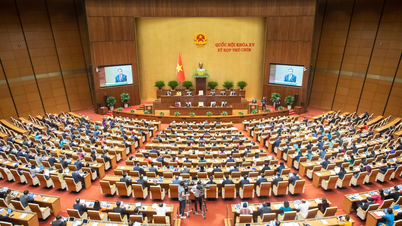



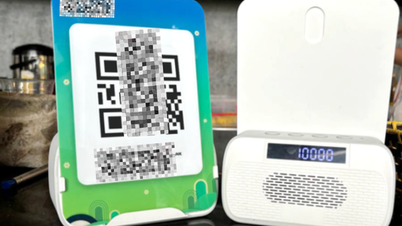
![[Video] Bringing environmental technology from the lab to life](https://vphoto.vietnam.vn/thumb/402x226/vietnam/resource/IMAGE/2025/5/11/57d930abeb6d4bfb93659e2cb6e22caf)








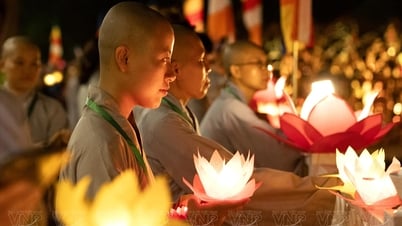

![[Photo] National Assembly Chairman Tran Thanh Man attends the Party Congress of the Committee for Culture and Social Affairs](https://vphoto.vietnam.vn/thumb/1200x675/vietnam/resource/IMAGE/2025/5/11/f5ed02beb9404bca998a08b34ef255a6)



















































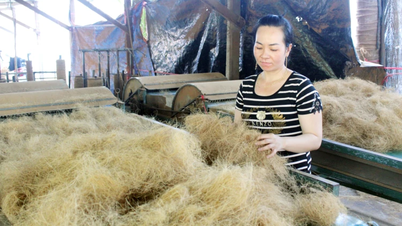
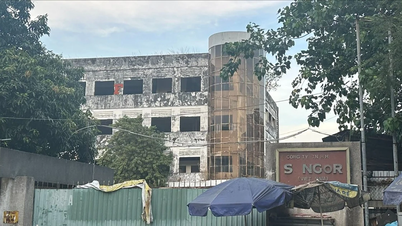










Comment (0)